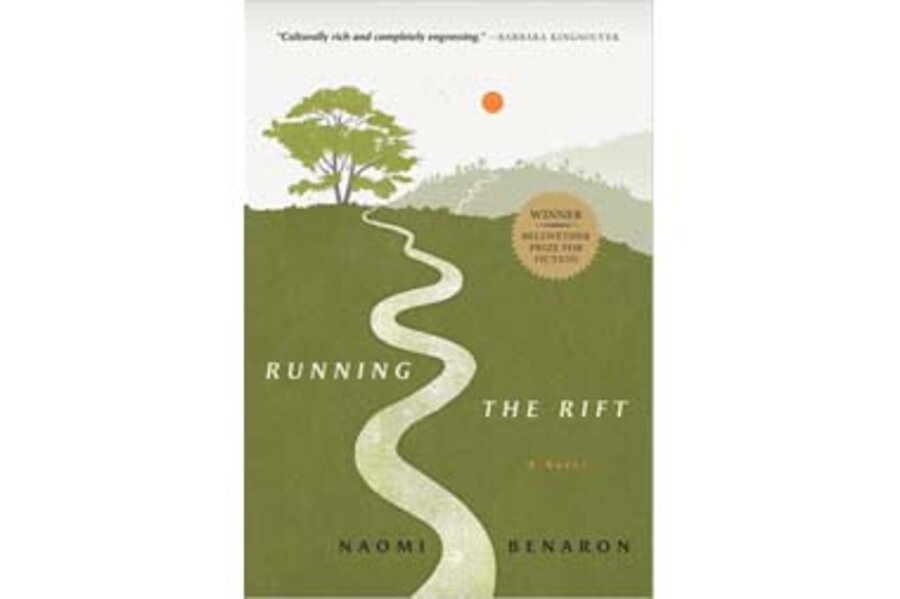Lots of athletes dream about going to the Olympics. But it's hard to imagine anyone having farther to travel than long-distance runner Jean Patrick Nkuba in Naomi Benaron's new novel, Running the Rift. Forget private coaching: He can't even afford a pair of Nikes.
After his father dies in a car accident, Jean Patrick lives in a corrugated metal shack with his mom, siblings, and fisherman uncle. Oh, and he is growing up as a Tutsi in Rwanda in the late 1980s and early '90s.
Benaron isn't interested in crafting an underdog tale, à la the Jamaican bobsled team. She uses Jean Patrick's coming-of-age to trace the lead-up to the 1994 genocide of ethnic Tutsis by the majority Hutu population. Estimates range from 500,000 to 1,000,000 people were murdered between April and July. Whatever number you pick, the death toll was so huge, it's difficult for most of us to grasp even as a statistic. Jean Patrick and his family offer a way for readers to experience the beauty in Rwandan culture and to grieve for all that was lost.
All Jean Patrick wants to do is run for his country, and he's willing to do it in too-small shoes with people hurling insults like “cockroach” at him. His coach, a Hutu, gets him a Hutu ID card, so that Jean Patrick won't be excluded from representing Rwanda by his ethnicity. There is, of course, the implication that the card could later save his life, but Benaron doesn't offer easy solutions, or easy stereotyping of her characters.
She clearly loves the food, culture, and natural beauty of Rwanda, with Lake Kivu and the Virunga Mountains with its famous gorillas.
“Running the Rift” isn't a forced march to tragedy, with Benaron sneaking in the occasional bit of humor. At one point, Jean Patrick and a friend get to taste a McDonald's hamburger, flown in from Belgium for a government party. “I do not understand how Americans think,” the friend says after one bite.
Benaron, who has worked with Rwandan genocide survivors, won Barbara Kingsolver's Bellwether Prize, which the author awards biennially to fiction with a social conscience. But “Running the Rift” is more than literary spinach. Benaron has crafted a story that's compelling enough to bring readers along on the journey, even as they recoil at the prospect of what's waiting at the finish line.





